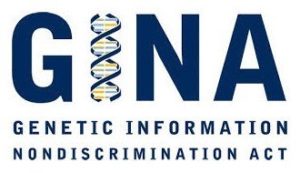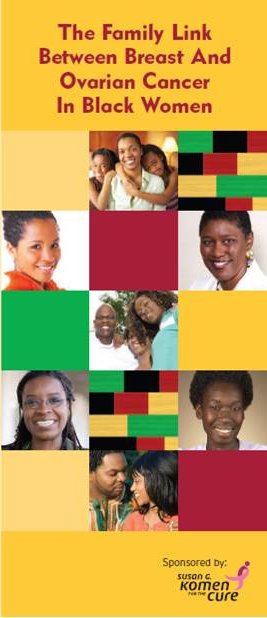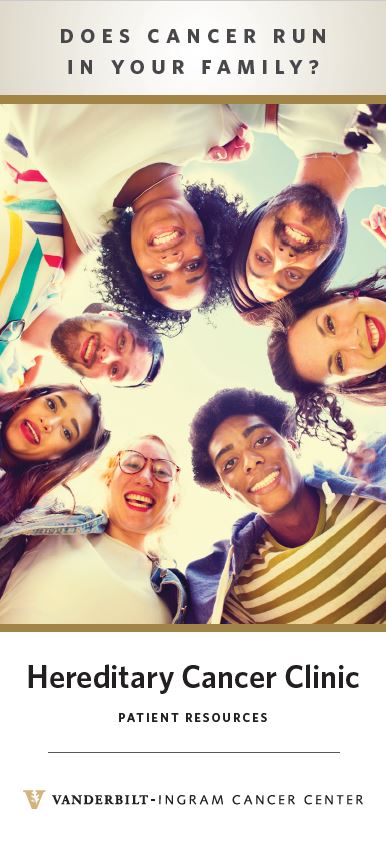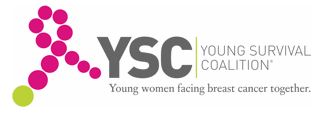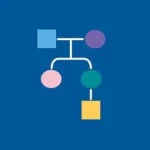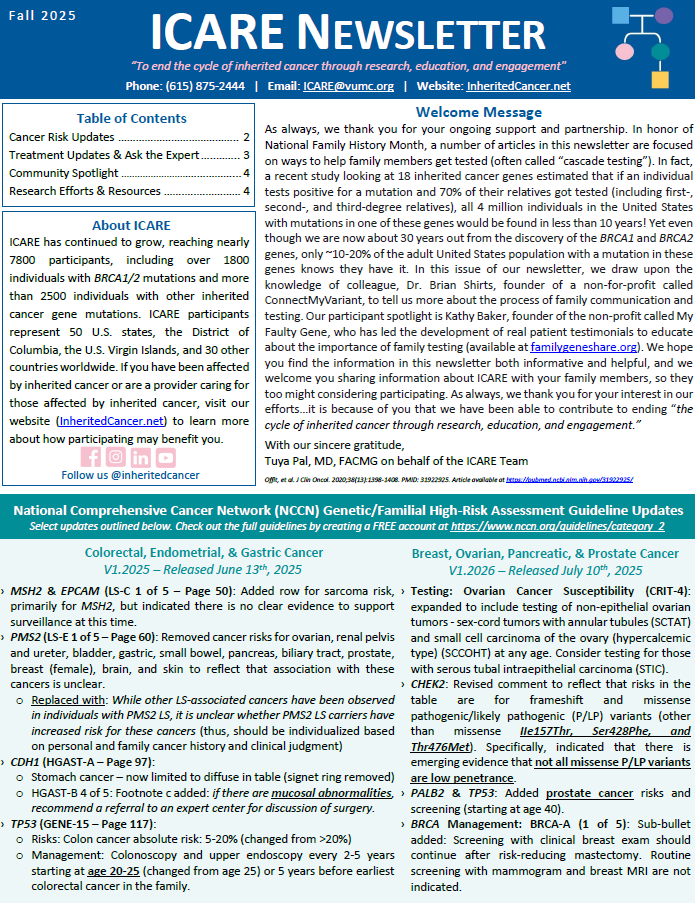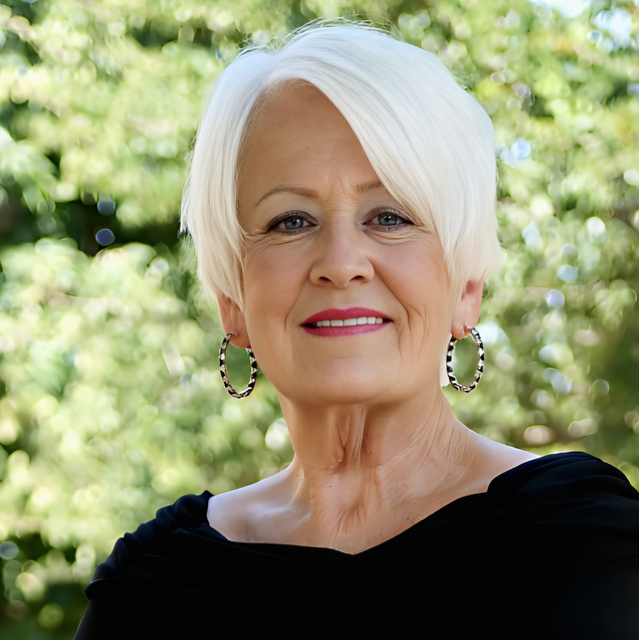Why Participate in ICARE?
You and your family may or may not benefit directly from your participation in ICARE; however, by participating in this registry, you are helping provide information that will be useful to:
- Describe the natural history of cancer development, tumor progression and response to treatment in hereditary cancers
- Describe the effects of surveillance and prophylactic interventions on cancer detection and development in individuals at risk for hereditary cancer
- Describe the effects of the cancer genetic counseling and testing process on individuals at risk for hereditary cancer
ICARE provides participants with periodic updates on the latest scientific findings about clinical cancer genetics and new research protocols or projects for which they may be eligible through newsletters, electronic information transfer, and/or other approaches.
Who Can Participate?
- Men and women
- Aged 18 or older
- Have a personal and/or family history of cancer
What Are Participants Asked to Do?
Participation in this study includes completion of one or more of the following:
- Informed Consent form
- Initial Questionnaire
- Follow-up questionnaires to gather updates to your personal and family history
- Provide copies of your genetic test results and family tree (if applicable)
- Donating a saliva sample (please note that while we do not anticipate individual results, general research findings from samples will be reviewed in our newsletters)
How Do I Join ICARE?
To join our registry, please click below. Once you complete the consent form, you will be automatically directed to the online release forms and initial questionnaire. You may choose to complete the questionnaire immediately or save and return later.
There is no cost to participate and communications can be conducted via phone, email, or mail. If you would like to complete the materials on paper, please complete our contact form.
What is Hereditary Cancer?
Most cancer is sporadic, meaning it happens by chance. Although everyone has a chance of developing cancer, there are certain factors (e.g., lifestyle habits or family genetics) than can increase or decrease this chance. However, a small number of people (~10% of the population or less) inherit altered genes that may predispose them to developing particular cancers. Since the 1990s, several inherited cancer genes have been discovered, for which genetic testing is available. Individuals interested in learning more about whether they or their family members may be at a higher risk for cancer development due to an inherited gene mutation should consult with a specialist with experience in the area of hereditary cancer, cancer risk assessment, and genetic counseling and testing.
For more information about hereditary cancer predisposition, please select the links below:
PDQ® Cancer Information Summaries: GeneticsNational Comprehensive Cancer Network (NCCN)
How to Locate a Genetics Professional Near You
To find a genetics health professional near you, please visit the following websites:
National Society of Genetic Counselors (NSGC) Find a Genetic Counselor
American College of Medical Genetics and Genomics (ACMG) Find a Genetic Service
Participant Resources

ICARE is proud to partner with Imerman Angels to provide personalized, peer-to-peer support for individuals impacted by genetic mutations that increase the risk of cancer. Whether you are currently navigating a cancer diagnosis, are a survivor, a previvor (someone who is genetically predisposed but has not been diagnosed), a caregiver, or a family member, you don’t have to face this journey alone.
Through this collaboration, you can connect one-on-one with someone who truly understands what you’re going through—because they’ve been there too. Whether you are looking to receive support or share your own experiences to help others, this program offers a meaningful way to build connections and foster hope. To learn more or get matched with a peer mentor, please visit: ImermanAngels.org or call (866) IMERMAN
Family Gene Share: Testimonials from People Affected with Inherited Cancers
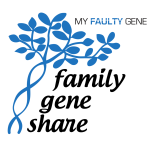
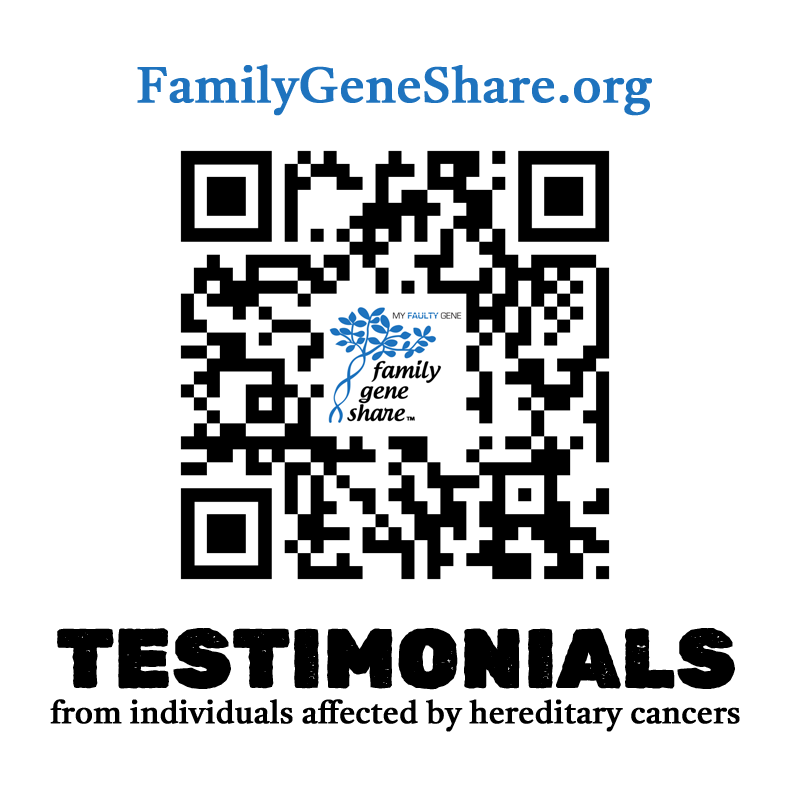
We invite you to explore short videos of personal stories from people with inherited cancer due to specific genes (e.g., BRCA1, BRCA2, PALB2, Lynch Syndrome genes, and others), produced by My Faulty Gene. You may watch these videos by visiting https://familygeneshare.org/, scanning the above QR code, or using the gene-specific links below. Sharing these videos with family members may be an effective way to explain the importance of genetic testing to them.
- ATM: https://familygeneshare.org/atm/
- BMPR1A: https://familygeneshare.org/bmpr1a/
- BRCA1: https://familygeneshare.org/brca1/
- BRCA2: https://familygeneshare.org/brca2/
- CDH1: https://familygeneshare.org/cdh1/
- CDKN2A: https://familygeneshare.org/cdkn2a/
- CHEK2: https://familygeneshare.org/chek2/
- EPCAM/MSH2: https://familygeneshare.org/epcam-msh2/
- MLH1: https://familygeneshare.org/mlh1/
- MSH2: https://familygeneshare.org/msh2/
- PALB2: https://familygeneshare.org/palb2/
- PMS2: https://familygeneshare.org/pms2/
- RAD51D: https://familygeneshare.org/rad51d/
- TP53: https://familygeneshare.org/tp53/
Brief Educational Video About Inherited Cancer Genetic Testing
Genetic Information Nondiscrimination Act (GINA)
GINA is a federal law passed in 2008 to protect individuals from genetic discrimination in health insurance and employment. These entities cannot request, require, or use an individual’s genetic information to make decisions about their eligibility and coverage. GINA does not, however, protect an individual from genetic discrimination in supplemental insurance such as life and disability.
The Family Link Between Breast and Ovarian Cancer in Black Women
A brochure to raise awareness about inherited breast cancer among Black women. This brochure was developed as part of the Breast Cancer Genetics Research and Education for African American Women (B-GREAT) Team, which represents the academic-community partnership (consisting of community leaders and researchers) that was developed to address breast cancer health disparities in Black women.
A Patient’s Guide to Lynch Syndrome
Please select the link above to visit the Hereditary Colon Cancer Foundation website, where you can access a guide intended to provide information to those affected by Lynch syndrome but should not replace discussions or advice from your medical provider.
Does Cancer Run in Your Family?
This patient-focused brochure describes inherited cancer risk and how meeting with a genetics professional may benefit you or your family members.
Evaluating Patients for Inherited Cancer Susceptibility
This provider-focused brochure provides information on genetic counseling and testing services.
Talking About BRCA in Your Family Tree
This booklet is intended for parents who are preparing to discuss familial BRCA mutation with their child or children.
Organizations
A non-profit organization dedicated to improving the lives of individuals affected by hereditary colorectal cancer and other Lynch Syndrome-related cancers. Founded by cancer survivor David Dubin, the organization focuses on raising awareness, providing support, and promoting research through various initiatives. Alive and Kick’n empowers patients and their families by offering resources, fostering a supportive community, and advocating for genetic testing and early detection. Their mission is to increase the survival rates and quality of life for those impacted by hereditary cancers.
Bright Pink is on a mission to save women’s lives from breast and ovarian cancer by empowering them to live proactively at a young age.
This campaign provides information about breast cancer to women younger than age 45 by sharing real stories about young women whose lives have been affected by breast cancer.
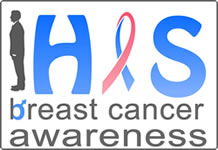
This informative web site was created to assist men, women, health care professionals, and anyone who is interested in learning about the risk, treatment(s), emotional aspect and stigmatization of men dealing with this disease.
Male Breast Cancer Global Alliance

The Male Breast Cancer Global Alliance (formerly the Male Breast Cancer Coalition) brings men with breast cancer together with researchers, clinicians, and oncologists around the world for the purpose of advancing research, clinical trials, and treatments for men diagnosed with breast cancer. Their mission is to advocate for all men diagnosed with breast cancer to ensure they receive equal access to support and treatment; to serve as a source of support and resources for the men, their caregivers, and their families; to ensure that men are appropriately represented in research and clinical trials, and to recruit volunteer “ambassadors” to increase awareness of breast cancer in men on a global scale. To learn more, please visit www.mbcglobalalliance.org.
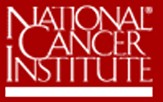
National Cancer Institute (NCI)
To read expert-reviewed summaries on hereditary cancer, visit the National Cancer Institute’s Physician Data Query Information Summaries on genetics.
National Society of Genetic Counselors (NSGC)

The mission of the NSGC is to advance the various roles of genetic counselors in health care by fostering education, research, and public policy to ensure the availability of quality genetic services. Please click the link above to find a genetic counselor in your area or to learn more about how genetic counseling can impact your healthcare.
Young Survival Coalition (YSC) is the premier global organization dedicated to the critical issues unique to young women who are diagnosed with breast cancer. YSC offers resources, connections and outreach so women feel supported, empowered and hopeful.

